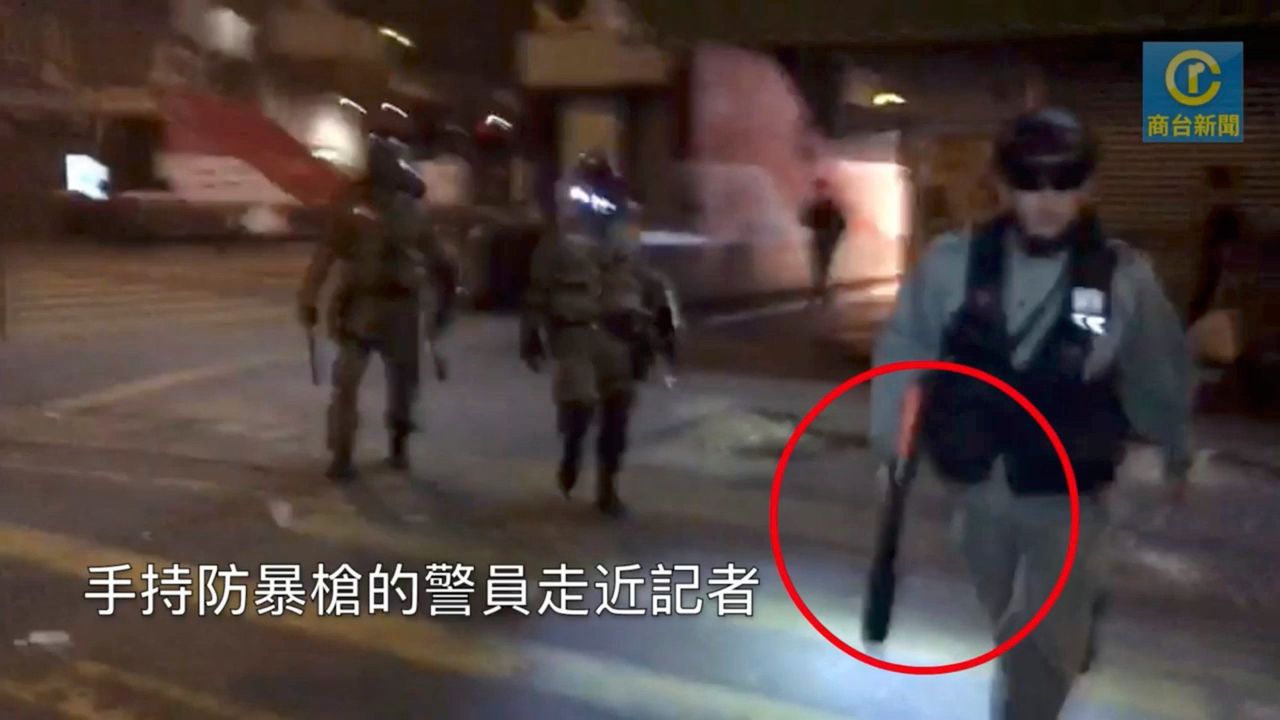Hong Kong News

Police rejection of complaint by Hong Kong reporter hit by sponge grenade upheld
Hong Kong’s police watchdog has backed the force’s dismissal of a complaint lodged by a former radio reporter who accused an officer of “unnecessary use of authority” after he was hit in the back by a sponge grenade as he covered a 2019 anti-government protest.
The Independent Police Complaints Council (IPCC) highlighted that Raymond Cheng, who worked for Commercial Radio at the time, had not provided any new information after he filed an application last September to review the findings of the force’s internal Complaints Against Police Office (CAPO) investigation.
Cheng on Monday said he disagreed with the results of the investigations into the incident, which happened on November 16, 2019.
“I’m extremely disappointed that the police and the council still maintain a false conclusion after the review of the case,” he said.
 A police officer armed with a specialist weapon designed to fire tear
gas and sponge grenades at a demonstration in Mong Kok in 2019.
A police officer armed with a specialist weapon designed to fire tear
gas and sponge grenades at a demonstration in Mong Kok in 2019. CAPO also insisted the behaviour of the officer involved was “not unreasonable”.
The IPCC said in its reply to Cheng, released earlier this month, that CAPO believed its findings should be upheld after a review found nothing wrong in its investigation of the complaint.
“After reviewing the above complaint case and related files in detail, the council agrees that the Complaints Against Police Office maintains the original investigation results,” the IPCC said.
The IPCC emphasised that its conclusion did not mean Cheng’s allegations were not credible or that the officer involved was free from any wrongdoing.
But it highlighted that if there was no reliable evidence to prove an allegation, the complaint could not be upheld.
Cheng earlier said that officers had pushed other journalists, who were wearing reflective vests and holding cameras near Langham Place mall in Mong Kok, at around 1am on the day of the incident and that he had taken his mobile phone out to record the police actions.
He said police tried to stop him from recording, but he resisted and read aloud an officer’s operational call sign – the ID number worn by uniformed police so they can be identified – for the record.
Cheng said another officer pointed at him and said “arrest him” and when he turned to leave he felt something hit his backpack and heard a noise like a gunshot.
He was not injured but the non-lethal round was suspected to have left a hole in his backpack.
CAPO said in its earlier reply to the reporter that the scene was chaotic and officers had asked him and two others to leave the area for their own safety, but Cheng had ignored the warning.
The unit said Cheng had touched an officer’s hand before “turning away to run”.
The officer was said to have chased Cheng and a sponge grenade – a foam-tipped plastic projectile designed to temporarily disable – was fired at Cheng.
The force did not specify if the sponge grenade was fired by the officer in pursuit.
But the CAPO investigation said that the act was “not unreasonable”.
“As there was not enough evidence to support the allegation [of unnecessary use of authority], the allegation is classified as ‘unsubstantiated’,” the original investigation found.
But Cheng insisted that the police statement that he rushed forward and touched an officer’s hand was false and that he had only attempted to film the officer’s operational call sign.
He also argued that it was unreasonable for police to fire the sponge grenade at him, and that it was not in line with police procedure.
He argued that police should cooperate with the media’s work as much as possible and should not hinder media’s filming at the scene.
Allegations of police misconduct are at first investigated by CAPO, but the IPCC reviews decisions to ensure fairness.











